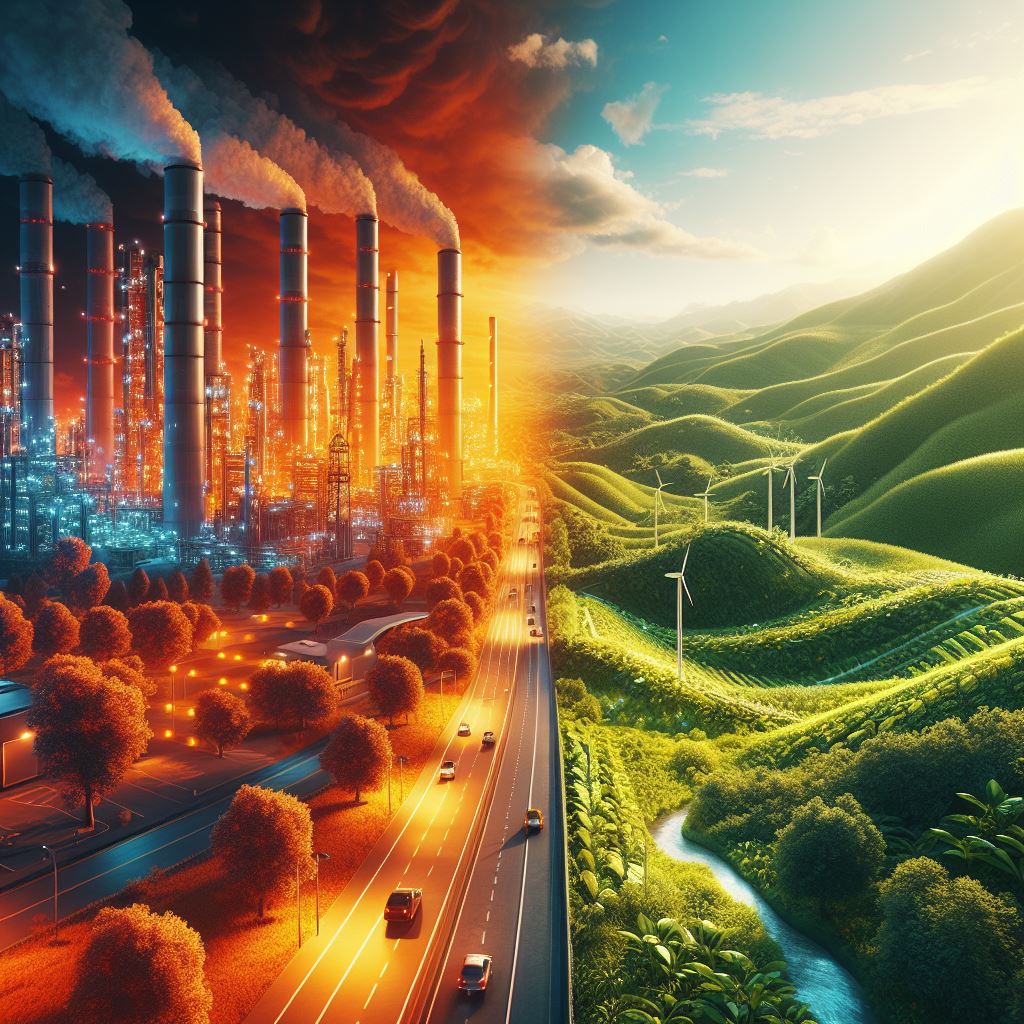The Hidden Agenda 2030 Conspiracy in the Paris Siege
In an unprecedented move that grips every soul of France, farmers across the nation are launching an indefinite siege of Paris, starting Monday. This action, more than a mere protest for better working conditions, symbolizes a deep-seated frustration. It’s a culmination of grievances against red tape, environmental policies, and what some perceive as an Agenda 2030 conspiracy, slowly choking the lifeblood of France’s agrarian identity.
Farmers Versus Red Tape: A Battle for Survival & Every Soul Of France
For days, this brewing discontent has manifested in nationwide protests, uniting every soul of France’s farming community. Their plight is not just about financial strain or competition; it’s a fight against an invisible enemy – bureaucratic constraints and environmental regulations. These policies, often branded as part of a larger ‘agenda 2030 conspiracy,’ are viewed as shackles, hindering French farmers from competing fairly with their less-regulated neighbors.
The Siege: A Symbol of Resistance
As tractors and trucks block roads, creating strategic chokepoints around Paris, the government’s response is equally formidable. A mobilization of 15,000 police and paramilitary gendarmes is underway, with orders to maintain order but show “moderation.” This standoff isn’t just about traffic disruption; it’s a cry for recognition, a demand to be heard by a system that seems increasingly alien and unresponsive to the needs of every soul of France’s agricultural backbone.
Government’s Dilemma: Quelling Discontent or Igniting Fury?
With European Parliament elections looming, the government’s handling of this siege could be pivotal. Prime Minister Gabriel Attal’s farm visit and concessions appear as mere band-aids, failing to address the core issues that fuel farmers’ resentment. The agenda 2030 conspiracy whispers grow louder, as farmers view these regulations not as protective measures, but as tools to erode their livelihood.
The Struggle Beyond Borders: A Global Phenomenon?
This unrest isn’t confined to France alone. From Belgium’s highway blockades to protests across Germany, Poland, Romania, and the Netherlands, a pattern emerges. It’s a global outcry against policies perceived to favor big corporations and globalist agendas, over the hardworking individuals toiling the land. The agenda 2030 conspiracy theory finds fertile ground here, as farmers across Europe unite in their skepticism towards globalist policies and corporate collusion.
Conclusion: Unveiling the True Culprit?
As every soul of France stands at the brink of this monumental siege, one must ponder – is this merely about wages and regulations? Or is it a manifestation of a deeper, more systemic issue, where corporate collusion and hidden agendas dictate the fate of the common man? The agenda 2030 conspiracy theory, whether fact or fiction, symbolizes this growing distrust and the search for truth in a world where the lines between the welfare of the many and the interests of the few are increasingly blurred.
In the heart of Paris, amidst blocked roads and farmer chants, lies a question for every soul of France: Who truly holds the reins of power in this modern age?
The Unveiled Truth: How Agenda 2030 Infringes on Our Freedoms
Global Framework vs. National Sovereignty: A Tug of War
Every soul of France, and indeed the world, faces an unprecedented challenge under the guise of the Sustainable Development Goals (SDGs) and Agenda 2030. This global framework, universally applicable to all countries, poses a significant threat to national sovereignty. Each nation’s freedom to set its policies and priorities is at stake. For instance, certain goals of Agenda 2030 may starkly conflict with a country’s cultural norms, economic practices, or political ideologies. This intrusion into national autonomy is not just concerning but echoes a sentiment that feels eerily similar to the protests by French farmers against overbearing regulations. It’s a larger scale replication of the same struggle.

The Shackles of Economic Regulations: Strangling Market Freedom
Agenda 2030’s implications on economic regulations and market freedoms are alarming. Calls for stringent environmental standards and labor rights, as noble as they may sound, effectively limit the freedoms of the market and the private sector. Goals 8 and 12 of the SDGs, focusing on sustainable economic growth and responsible consumption, hint at a scenario where market dynamics are heavily dictated by regulatory frameworks. This mirrors the plight every soul of France’s farming community faces, battling against regulations that they perceive as suffocating their livelihoods.
Property Rights and the Redistribution Paradigm
The SDGs advocate for equitable distribution and access to resources (Goal 1.4), a notion that directly challenges the concept of property rights and economic freedoms. In countries where property rights are a cornerstone of economic structure, this approach is not just intrusive but potentially destructive to the foundational principles of a free market economy.
Data Collection: A Veil for Privacy Invasion
The emphasis on data collection for monitoring progress (Goal 17.18) raises significant concerns regarding privacy and surveillance. In a world where digital privacy is already under siege, this increased data collection could be a gateway to more invasive forms of surveillance, particularly in countries with inadequate protections against data misuse.

Gender Equality vs. Cultural Norms: The Clash of Ideologies
Agenda 2030’s focus on gender equality (Goal 5) might come into direct conflict with the cultural and religious practices of various societies. This imposition of a global standard on gender issues can be perceived as an infringement on the cultural and religious beliefs and practices of different communities, echoing a form of cultural imperialism.
Migration Policies: Breaching National Borders
The goals encouraging safe and responsible migration (Goal 10.7) could be seen as infringing on a country’s right to enforce its immigration laws and policies. This aspect of Agenda 2030 hints at overriding national sovereignty and border control, a concern that resonates with those who value national autonomy and the right to self-governance.
Climate Action: A Double-Edged Sword
While combatting climate change is crucial, the integration of climate action into national policies (Goal 13) could impose limitations on economic or industrial activities. This is particularly concerning for developing countries, where such restrictions could severely impact economic growth and development, much like the environmental regulations that have sparked outrage among the farmers in France.

Technology Transfer: Intellectual Property at Risk
The call for technology transfer (Goals 17.6 and 17.7) raises issues related to intellectual property rights, affecting the freedoms of businesses and innovators. This approach potentially undermines the value of intellectual property, a key driver of innovation and economic growth.
Forced Labour and Corporate Constraints
The eradication of forced labor (Goal 8.7) imposes stringent requirements on businesses to alter their labor practices and supply chains. While this is a crucial human rights issue, the manner in which it is implemented could impose undue burdens on businesses, especially those operating in complex international markets.
Public-Private Partnerships: The Shadow Over Governance
Encouraging public-private partnerships (Goal 17.17) raises questions about the influence of private entities on governance and policy-making. This aspect of Agenda 2030 could affect democratic freedoms and public accountability, leading to a scenario where corporate interests potentially overshadow public welfare.

Agenda 2030: A Cloaked Path to Control
In sum, Agenda 2030, while cloaked in the language of global improvement, carries with it significant threats to freedoms – economic, policy, cultural, and individual. The eerie uniformity and global push of these goals bring to mind a level of coordination that seems almost unnatural, invoking a sense of a deeper, more insidious agenda at play. The Agenda 2030 conspiracy, once a whisper in the corridors of skepticism, now echoes loudly in the halls of reality, a reminder that the line between global improvement and global control is perilously thin.
Supplemental Info:
Belgian Farmers Blockade: A United Stand Against Agenda 2030
In a move resonating with every soul of France’s protest, Belgian farmers have taken a definitive stand against Agenda 2030. Their actions, marked by blocking highways in southern Belgium and stationing tractors near the EU Parliament in Brussels, speak volumes. About 30-40 tractors, symbols of agrarian dissent, lined up on the E19 road south of Brussels, with farmers spending nights in their cabs. This Belgian farmers blockade is not just a local outcry; it’s part of a larger narrative questioning the ramifications of Agenda 2030 on agricultural communities. These events underscore a growing European skepticism towards global policies that seemingly overlook the struggles of the farming community.
Dutch Farmers’ Rebellion: A Fight Against Nitrogen Regulations
Last year, Dutch farmers, echoing the sentiments of every soul of France, launched a formidable protest against stringent nitrogen emission regulations. Their actions – blocking roads, dumping manure in streets, and protesting outside politicians’ houses – were a striking statement against these mandates. As one of the world’s leading agricultural exporters, the Dutch farming industry is accountable for about half of the Netherlands’ total nitrogen emissions. In 2019, a significant ruling by the Netherlands’ highest administrative court highlighted the failure of the nitrogen permits system to protect the Natura 2000 network, specially designated nature reserves. This Dutch farmers’ rebellion underlines a broader European discontent, where agricultural communities are increasingly clashing with environmental regulations perceived as overbearing and detrimental to their livelihoods.
Table of Contents
Check out our featured articles here: https://bangor.today/c/spotlight/featured/
Check out the Wikipedia page that might be relevant: 2024 French farmer protest – Wikipedia



